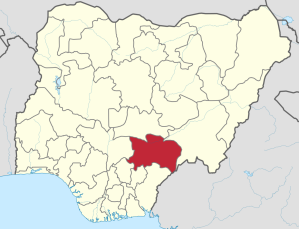
Fulani herdsmen on Tuesday (Oct. 1) attacked a predominantly Christian village in central Nigeria, killing seven people, area residents said.
The herdsmen raided Egwuma village, Agatu County, Benue state at about 5 p.m., said Philip Ebenyakwu, chairman of the Agatu Local Government Council in a press statement.
“They began shooting sporadically at the villagers when they got into the village,” Ebenyakwu said. “They killed seven people, and this is aside from those injured during the attack. We have also contacted security agencies, and they are mobilizing to go after the invaders.”
Area resident Edwin Ogbanje said the assailants were Fulani herdsmen militia who left a trail of devastation.
“It’s imperative that a thorough investigation be carried out into this incident and hold those responsible accountable,” Ogbanje said. “These Fulani herdsmen attacks have been on the rise, with reports indicating that they have become one of the deadliest terrorist groups in the world. The Nigerian government must take decisive action to address this growing threat and protect its citizens.”
Audu Sule, a former legislator in the Benue State House of Assembly, said Egwuma village is less than a kilometer from his home in Ogwule.
“Those killed include the community leader and six members of his community,” Sule said.
Sule said the attack was the fourth in the area in past month.
“The deadly activities of herdsmen in our area have not been brought to an end by the authorities of this country,” he said.
Pastor Ojotu Ojema, Agatu representative to Nigeria’s National Assembly, said it was appalling that nothing has been done to curtail constant attacks in the area. He called on the military to put more effort into preventing further attacks and decried “frequent scenarios whereby armed Fulani herdsmen would cross from neighboring Kogi and Nasarawa states to Apa and Agatu communities, carry out their deadly attacks and go scot-free despite the presence of the military.”
Catherine Anene, spokesperson for the Benue State Police Command, confirmed the attack on Egwuma village and said “security agents, including the military, are currently in that area in order to go after the attackers.”
Numbering in the millions across Nigeria and the Sahel, predominantly Muslim Fulani comprise hundreds of clans of many different lineages who do not hold extremist views, but some Fulani do adhere to radical Islamist ideology, the United Kingdom’s All-Party Parliamentary Group for International Freedom or Belief (APPG) noted in a 2020 report.
“They adopt a comparable strategy to Boko Haram and ISWAP and demonstrate a clear intent to target Christians and potent symbols of Christian identity,” the APPG report states.
Christian leaders in Nigeria have said they believe herdsmen attacks on Christian communities in Nigeria’s Middle Belt are inspired by their desire to forcefully take over Christians’ lands and impose Islam as desertification has made it difficult for them to sustain their herds.
Nigeria remained the deadliest place in the world to follow Christ, with 4,118 people killed for their faith from Oct. 1, 2022 to Sept. 30, 2023, according to Open Doors’ 2024 World Watch List (WWL) report. More kidnappings of Christians than in any other country also took place in Nigeria, with 3,300.
Discrimination in the Northwest
In the northwest region, Christian leaders criticized the Nigerian president for submitting only Muslim candidates for the board of a body charged with development projects.
All nine candidates that President Bola Ahmed Tinubu, a Muslim, had submitted on Sept. 28 were appointed to the board of the Northwest Development Commission.
Elder Sunday Oibe, chairman of the Northwest Nigeria Chapter of the Christian Association of Nigeria (CAN), said in a press statement on Saturday (Oct. 5) that Christians who would be impacted by policies of the commission should not have been excluded.
“Christians in the northwest are deeply concerned about the recent appointments, which did not reflect the diversity in the region,” Oibe said. “There’s the need for Nigeria’s president, Bola Ahmed Tinubu, to take note of the fact that there are indigenous Christians in all the states that make up the northwest – Kaduna, Kano, Jigawa, Katsina, Kebbi, Sokoto and Zamfara.”
It should not be assumed that the entire population in the northwest is Muslim, he said.
“These lopsided appointments, to say the least, is unbecoming of the Tinubu administration, and we are disenchanted by this action,” Oibe said.
He called on Tinubu to review the appointments and make necessary adjustments to ensure balanced representation, “as leaving these appointments unchanged will have negative consequences for the commission’s success and encourages religious divisions in the region and Nigeria as a whole.”
Tinubu nominated Haruna Ginsau (Jigawa) as chairman of the board and Abdullahi Shehu Ma’aji (Kano) as managing director/chief executive officer. Other members appointed were Yahaya Namahe (Sokoto), Aminu Suleiman (Kebbi), Tijani Kaura (Zamfara), Abdulkadir Usman (Kaduna), Muhammad Wudil (Kano), Shamsu Sule (Katsina) and Nasidi Ali (Jigawa).
In the 2024 WWL of the countries where it is most difficult to be a Christian, Nigeria was ranked No. 6, as it was in the previous year. Nigeria was the third highest country in number of attacks on churches and other Christian buildings such as hospitals, schools, and cemeteries, with 750, according to the WWL report.





